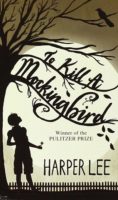 The Sun Herald reports that Biloxi administrators pulled the novel from the eighth-grade curriculum this week. School board vice president Kenny Holloway says the district received complaints that some of the book’s language ‘makes people uncomfortable.’
The Sun Herald reports that Biloxi administrators pulled the novel from the eighth-grade curriculum this week. School board vice president Kenny Holloway says the district received complaints that some of the book’s language ‘makes people uncomfortable.’
‘There were complaints about it,’ she said. However, the school board did not vote on the decision
Harper Lee, the author of the Pulitzer Prize-winning novel, died in 2016 at the age of 89. Published in 1960, the Pulitzer Prize-winning novel by Harper Lee deals with racial inequality in a small Alabama town.
A message on the school’s website says, “To Kill A Mockingbird teaches students that compassion and empathy don’t depend upon race or education.” Holloway says other books can teach the same lessons.
The Sun Herald received a email that said the decision was made ‘mid-lesson plan, the students will not be allowed to finish the reading of To Kill A Mockingbird …. due to the use of the ‘N‘ word.’
The reader said: ‘I think it is one of the most disturbing examples of censorship I have ever heard, in that the themes in the story humanize all people regardless of their social status, education level, intellect, and of course, race. It would be difficult to find a time when it was more relevant than in days like these.’
The book remains in Biloxi school libraries.
The decision to remove the book from the curriculum set the internet ablaze in anger.
‘To Kill a Mockingbird should be required reading. This is insane‘ one user wrote.
‘Until I saw To Kill a Mockingbird I couldn’t visualize how someone’s lie could get a person killed. This should be required reading‘ another said.
‘You know what makes me uncomfortable? Censorship. That’s what makes me uncomfortable. Say NO to book banning!‘ A Twitter user posted.
‘If To Kill a Mockingbird makes you uncomfortable you should probably be reading To Kill a Mockingbird‘ one person pointed out.
Written by Mollie Cahillane and published by the Daily Mail ~ October 13, 2017.
FAIR USE NOTICE: This site contains copyrighted material the use of which has not always been specifically authorized by the copyright owner. We are making such material available in our efforts to advance understanding of environmental, political, human rights, economic, democracy, scientific, and social justice issues, etc. We believe this constitutes a ‘fair use’ of any such copyrighted material as provided for in section 107 of the US Copyright Law. In accordance with Title 17 U. S. C. Section 107, the material on this site is distributed without profit to those who have expressed a prior interest in receiving the included information for research and educational purposes. For more information go to: http://www.law.cornell.edu/uscode/17/107.shtml
